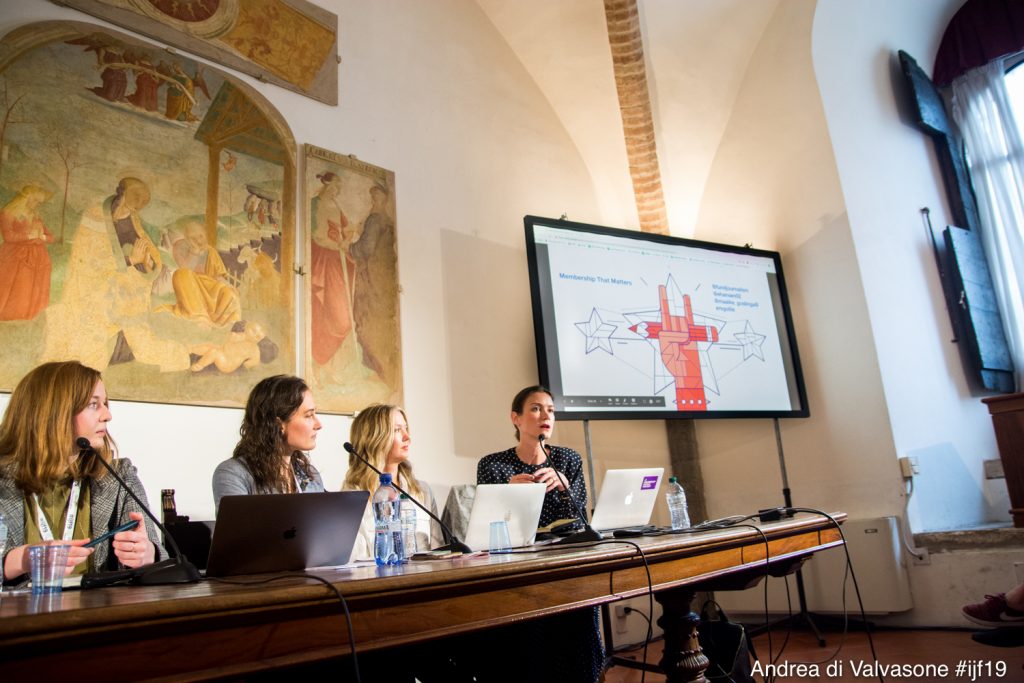Stay up to date by subscribing to our Newsletter or by following our Telegram channel, and join the conversation on Facebook, Twitter, and Instagram.
Edited by Marco Nurra
Watch all #ijf19 sessions on-demand: media.journalismfestival.com
Tracing disinformation with custom tools, burner phones and encrypted apps. As the 2020 race heats up, here’s how New York Times politics reporter Matthew Rosenberg is preparing for an onslaught of intentional falsehoods.
Trump’s 9/11 memories aren’t fact-based — and fact-checkers wrote about them again this year. Every time President Donald Trump talks about 9/11, U.S fact-checkers raise their pens. The story of what he did in 2001 right after two planes crashed into the Twin Towers in New York often changes. And fact-checkers always feel like pointing out the lack of evidence around this topic. 2019 was no different.
A fact-checker predicted which hoax would resurface — and beat it by an hour. Maarten Schenk has studied fake news and hoaxes so exactingly that he managed to predict a group of trolls’ next post. In moments of tragedy, crisis or turmoil, misinformation is often heightened. Schenk is not the first fact-checker to note the repetitive nature of false news during such events. A growing body of research offers some explanations, and media junkies have long commented on the trend, but Schenk said he doesn’t think it’s too complicated: “People are lazy, and they don’t understand how Google works.”
Google moves to prioritize original reporting in search. The company has changed its global search algorithm to “highlight articles that we identify as significant original reporting,” and to keep such articles in top positions for longer.
Here’s what we know so far about the upcoming Facebook News tab. Facebook’s News Tab is supposed to launch this fall; the company will pay some news publishers to syndicate their headlines and article previews.
Old, educated, and politically diverse: The audience of public service news. The Reuters Institute has used survey data from the Digital News Report to analyze the audience for public service news and find that it is old, educated, and politically diverse, and that public service media in many countries fall far short of the ambition to provide a near-universal news service, especially online. That’s the key finding in a new Reuters Institute report, led by Anne Schulz, working with David Levy and Rasmus Kleis Nielsen.
‘Project Miroslava’ finds flaws in Mexico’s investigation of journalist murder. An in-depth investigation into the March 23, 2017 killing of Mexican journalist Miroslava Breach Velducea found grave omissions, flaws and irregularities in authorities’ investigation of the murder. “Project Miroslava,” published earlier this month by Colectivo 23 de Mayo, a group of Mexican and international reporters, found that authorities appeared to ignore the alleged implication of two politicians, and that a drug trafficking gang’s threats to Breach were not properly investigated.
‘Journalism Thinking’ doesn’t need a business model. It needs a call to arms. The question isn’t “what is the business model for local journalism” but rather “how do we expand and defend journalism thinking?”
The International Journalism Festival #ijf19 On-Demand
Every week, one recommendation from the extensive programme of the last edition of the International Journalism Festival.

Today we are inviting you to watch “Membership that matters: it’s not just about money, it’s about trust, transparency and learning“. This session is for people interested in business models and member-engaged journalism, including journalists and editors working in member-oriented newsrooms, organizations considering restructuring or moving to a membership model, and anyone else who wants a firmer understanding of membership models.

